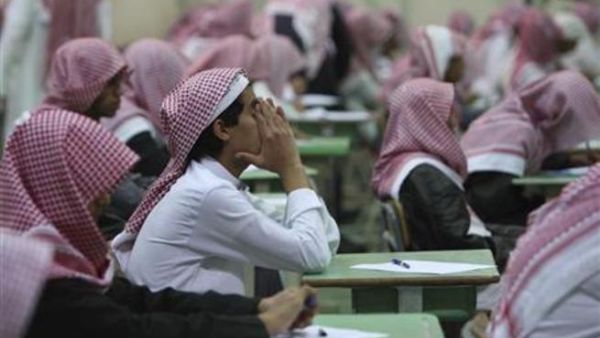Saudi Arabia has been surrounded by turmoil for the past three years. But how does the kingdom's youth perceive and react to the circumstances in neighboring Arab countries? Are they planning an uprising of their own?
Those two questions are hard to answer, given the unique nature of the Saudi mediascape where public opinion polls and queries of political, social and/or religious nature are prohibited and demurred.
Raif Badawi, known among the twitterati as the Saudi Malcolm X, has been in jail since June 17th 2012 for demanding basic rights for his compatriots, which his government deemed heretical, and subjected him to 10 years in jail and 1000 lashes.
Basic rights for Saudi citizens aren't only the demand of digital activists like Raif Badawi. Recent news reports revealed that the Saudi Monarch, King Abdullah bin Abdulaziz Al Saud, has kept his four daughters incarcerated for the past 13 years in a royal edifice in Jeddah.
The disturbing revelations which would have never been exposed without the facilitations of new technologies (the daughters of the Saudi King are using twitter and Skype to communicate with the world) that have penetrated Saudi Arabia and empowered its youth to voice their opinions, demands, challenges and aspirations, and occurring at a time when every single initiative in the Permit Kingdom is monitored by the two eyes (an eye of the morality police, the other of the civilian law enforcement) of the state which follow, threaten and imprison.
The young Saudis, nevertheless, are using new media to extend their rights and expand their freedoms in a country with sacred red lines and unhindered taboos. Their embrace of twitter is considered to be unmatched compared to other countries, not only in their brittle neighborhood, but also worldwide.
Global Web Index, a market research firm scrutinizing 31 countries, considers the adoption of twitter among the online Saudis and their utilization of the social medium to be the highest and the fastest growing in the world. They follow their favorite clergy, whom are also among the active users on twitter and enjoy some of the largest twitter followings in the world.
An example of those Saudi Islamic scholars is Sheikh Mohamad Al Arefe, Imam of the King Fahd Academy's Mosque, who is a dynamic social media user and tweets to almost 8.5 million followers a variety of issues from the theological to the social.
A number of campaigns have recently attempted to empower and mobilize Saudi women to breaking their societal shackles and challenging the imposed ban on female driving. In late October 2013, hundreds of Saudi women posted their photos and videos driving their private cars, turning down all the controversial moral taboos and raising the eyebrows of their male counterparts and that of their country's rulers.
Such a challenge to the Saudi authorities would have deemed inconceivable before the advent of social media among the Saudis. They have found their voice and recouped their power at an age of defiance of all redlines in the Arab World. The female Saudis, who have been inspired by the changes in the region, realized that their silence wouldn’t give them rights.
Their online campaign have gained them support and recognition all over the world, including, among millions others, from Saudi men whom have supported their cause and requested the authorities to grant them the right to drive. One attempt was epitomized by a Saudi Comedian by the name of Hisham Fageeh, who has posted on YouTube his take on the issue by reproducing Bob Marley's eternal hit 'No Woman, No Cry', yet while playing with the title's words. His post was dubbed 'No Woman, No Drive', and his version's lyrics were all about ridiculing the Saudi officials' vindication for maintaining a ban on women drivers.
The Saudi youth demographic is a ticking time bomb – for the regime. According to The Economist Pocket World in Figures 2014, 32% of the country's 29 million inhabitants are under the age of 15. The youth demographic strength isn't only in its numbers, but also in its smart utilization of new media in discussing, debating and publicizing their causes away from the censors' visors.
YouTube is hosting the first Saudi drama that is acted, produced and filmed by young Saudis, under the title, 'Takki' (or Sit-down). The series wants to embody the daily difficulties, challenges, hopes and desires of the Saudis in a globalized world. It's considered a hit and followed by millions whom see it as a relief from other soap operas that are either censored or imported and, thus, don’t represent their societal idiosyncratic references.
Change is imminent in the Permit Kingdom. The government will try to stifle many of the voices that use social media to call for change by intimidation, imprisonment or even persecution. The regime will rely on its allies from the religious establishment to vilify the social media users with all the diabolic traits in order to undermine its influence and deter others from following suit in their just call for the rule-of-law, instead of the rule-of-the-king.
Yet, it won't succeed because it can't silence millions of voices when they return the call of freedom, good governance and equality for all.
By Mohamed Selim








